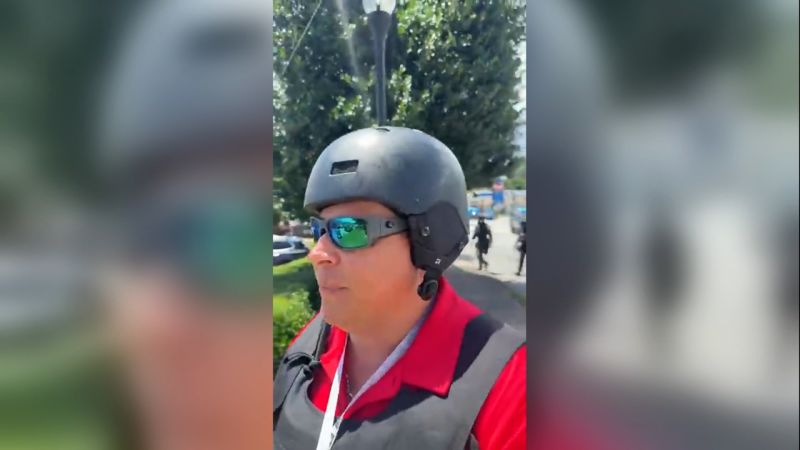An immigration judge in Georgia has ordered the release of Salvadoran journalist Mario Guevara on bail, allowing him to continue his immigration process outside of detention. This decision was confirmed by a relative of Guevara to CNN. Guevara, who has been in the United States since 2004, was held in Immigration and Customs Enforcement (ICE) custody for nearly two weeks before the ruling.
Guevara’s detention drew significant attention as he was identified by the US Press Freedom Tracker as the only journalist currently in custody in the United States. His arrest on June 14 occurred while he was covering a “No Kings” protest near Atlanta. Despite wearing a vest and press credentials, he was charged with improperly entering a pedestrian roadway, obstruction of law enforcement officers, and unlawful assembly. Although these charges were later dismissed, ICE sought to keep him detained due to his immigration status.
Background and Context
Mario Guevara has been a prominent figure in Georgia’s media landscape, known for his unique approach to covering immigration enforcement. Since arriving in the United States from El Salvador in 2004, he has built a substantial following on social media, often live-streaming immigration arrests and their aftermath. His coverage has provided a critical lens on immigration issues, resonating with many in the community.
Despite his significant contributions to journalism, Guevara’s immigration status has been precarious. His legal team has confirmed that he has authorization to work in the United States, although he lacks a permanent resident card. This situation has left him vulnerable to detention, as evidenced by the recent events.
Reactions and Implications
The Committee to Protect Journalists (CPJ) has been vocal in its support for Guevara, with representatives attending the hearing. Katherine Jacobsen, who was present for CPJ, expressed relief at the judge’s decision to release Guevara on bond. “Though we remain concerned about the arguments the prosecution made that Guevara’s work as a reporter presented a danger to the community,” Jacobsen stated.
“The fact that Guevara was arrested while exercising his First Amendment rights as a journalist and was subsequently held for over two weeks by various law enforcement bodies sends an alarming message to the media and has effectively silenced Guevara’s coverage of his community,” Jacobsen added.
Guevara’s wife, Miriam Sáenz de Guevara, expressed her gratitude for the legal team’s efforts and shared her happiness about the order. She noted that they are working on the details for Guevara’s return home, a sentiment echoed in her interview with NotiVisión Georgia.
Historical Parallels and Expert Opinions
This case highlights ongoing tensions between press freedom and immigration enforcement in the United States. Historically, journalists have faced challenges when reporting on sensitive topics, yet the arrest of a journalist for performing their duties remains a contentious issue. Experts argue that such actions can have a chilling effect on the media’s ability to cover important stories without fear of reprisal.
Legal experts have pointed out that Guevara’s case underscores the complex interplay between immigration law and press freedom. “The intersection of these two areas of law is fraught with challenges,” said immigration attorney Laura Peña. “Journalists like Guevara play a vital role in informing the public, and their ability to do so should be protected.”
Looking Ahead
As Guevara returns to his work and family, the broader implications of his case continue to resonate. Advocates for press freedom are closely monitoring the situation, wary of the precedent it might set for other journalists covering contentious issues. Meanwhile, Guevara’s legal team is preparing for the next steps in his immigration proceedings, hopeful for a favorable outcome.
The release of Mario Guevara on bail marks a significant moment in the ongoing dialogue about the rights of journalists and immigrants in the United States. As his case progresses, it will likely continue to draw attention from both media and legal communities, highlighting the delicate balance between national security and the fundamental freedoms enshrined in the First Amendment.
